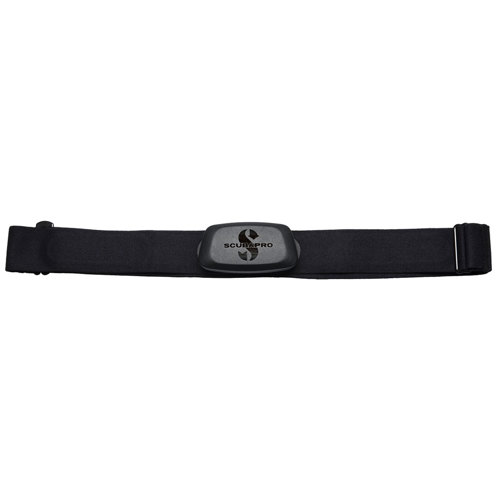






See Options
Need help? Ask our experts.
Review Summary
2024-02-11T19:00:00
Great addition to my dive, watch, and with my dive watch using workload, the heart rate monitor integrates into the workload.
Steve404
2022-02-26T19:00:00
The heart rate belt gives me heart rate during my dive and skin temperature, which I find helpful and I can attempt to correct for both.
Christina G.
Monitor Divers Heart Rate
Scubapro HUD, Galileo 2 & A2 Dive Computers
User Replaceable CR2032 Type Battery
394' (120m)
Around 50 Dive Hours or 1 Year
4048336416818
Great addition
By Steve404
Great addition to my dive, watch, and with my dive watch using workload, the heart rate monitor integrates into the workload.
Heart rate information
By Christina G.
The heart rate belt gives me heart rate during my dive and skin temperature, which I find helpful and I can attempt to correct for both.
The heart rate is an important indicator for arising stress. This has been known for a long time. The sports industry has reacted to this and is offering an array of products for ambitious athletes to analyze and evaluate their training. Whether you're a passionate recreational athlete, a professional marathon runner or a health-conscious retiree, today a heart rate meter is almost a standard piece of equipment. So why not use this technology in diving as well? With the aid of a heart rate monitor you can keep an eye on the heartbeat underwater as well and are thereby able to make your dives even safer. By monitoring the heart rate, the workload can be better assessed, and the diver can react to heightened stress in a timely manner. Furthermore, by measuring the heart rate you can specifically train to increase your endurance in advance.
Since increased exertion while diving in deep water increases circulation and this in turn increases the nitrogen uptake, the heart rate can also be used to calculate decompression times even more accurately and make diving even safer. That's why the Scubapro computers don't just show depth, no-stop times and the decompression schedule but also continuously inform the underwater athlete about his or her own heart rate, i.e., his or her personal stress, which in turn is factored in when calculating other dive parameters. However, there are several factors to consider when using the heart rate while diving.
Factoring your heart rate into your decompression calculations helps make diving safer and a lot more fun. A lightweight waterproof ECG (electrocardiogram) transmitter is clipped onto the elastic belt that straps around the chest, directly against the skin. This belt wirelessly transmits your heart rate data to your Scubapro personal dive computer. Data is displayed on the screen, plus is factored into your decompression calculations to create a more personalized dive plan and improve the quality of your diving. More comfortable to wear with soft elastic chest strap. More reliable ECG transmitter provides a patented skin temperature measurement that's factored into your decompression algorithm, helping to make diving safer and more enjoyable. Convenient heart rate monitor can be clipped on/off from the elastic belt so the belt can be rinsed and dried fully post-diving.
Compact design saves space in your dive bag. Belt can be used for diving, swimming or exercising. Compatible with Scubapro HUD, Galileo 2 and A2 dive computers (see SKU's: SCPHT, UTCG2C, SCPA2). Heart rate belt has an operation depth of 394' (120m) and is powered by a user replaceable CR2032 type battery, that lasts for around 50 dive hours or 1 year. The heart rate monitor comes with monitor belt & strap, key code to download the upgrade and owner's manual.
https://www.scubapro.com/scubapro-warranty
800-467-2822
Best Price Guaranteed + 5% OFF
Submit a price match
30/90 FREE Returns
Worry-free returns
Sell your Used Gear
Get started in 3 easy steps
